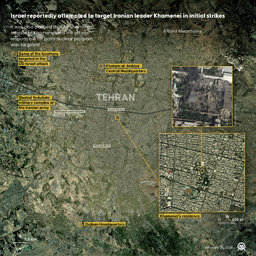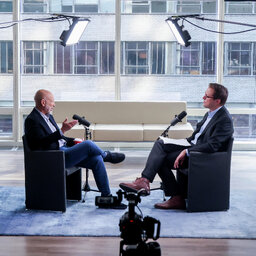This Episode is [Redacted]
The US public’s trust in the media, and the government, is markedly low. A recent Gallup poll found only about 30 percent of Americans trust the media — and Pew Research found only 16 percent trust their government.
Bloomberg’s Jason Leopold is using records to try to change that. He’s filed over 9,000 requests through the Freedom of Information Act, or FOIA — a Cold War era law meant to ensure the right to transparency from the US government.
On today’s episode, Big Take DC host Saleha Mohsin and Jason dissect the FOIA process, the challenges of sifting through redacted documents from secretive government entities and the stories FOIA records have brought to light.
Subscribe to the FOIA Files newsletter: https://www.bloomberg.com/account/newsletters/foia-files
In 1 playlist(s)
Big Take
The Big Take from Bloomberg News brings you inside what’s shaping the world's economies with the sma…Social links
Follow podcast
Recent clips

The Threat of Iran’s “No Red Lines” Retaliation
15:10

Former Goldman Sachs CEO Lloyd Blankfein Says the Market Is Due For a Reckoning
36:40

Special Report: US and Israel Strike Iran
11:55
 Big Take
Big Take